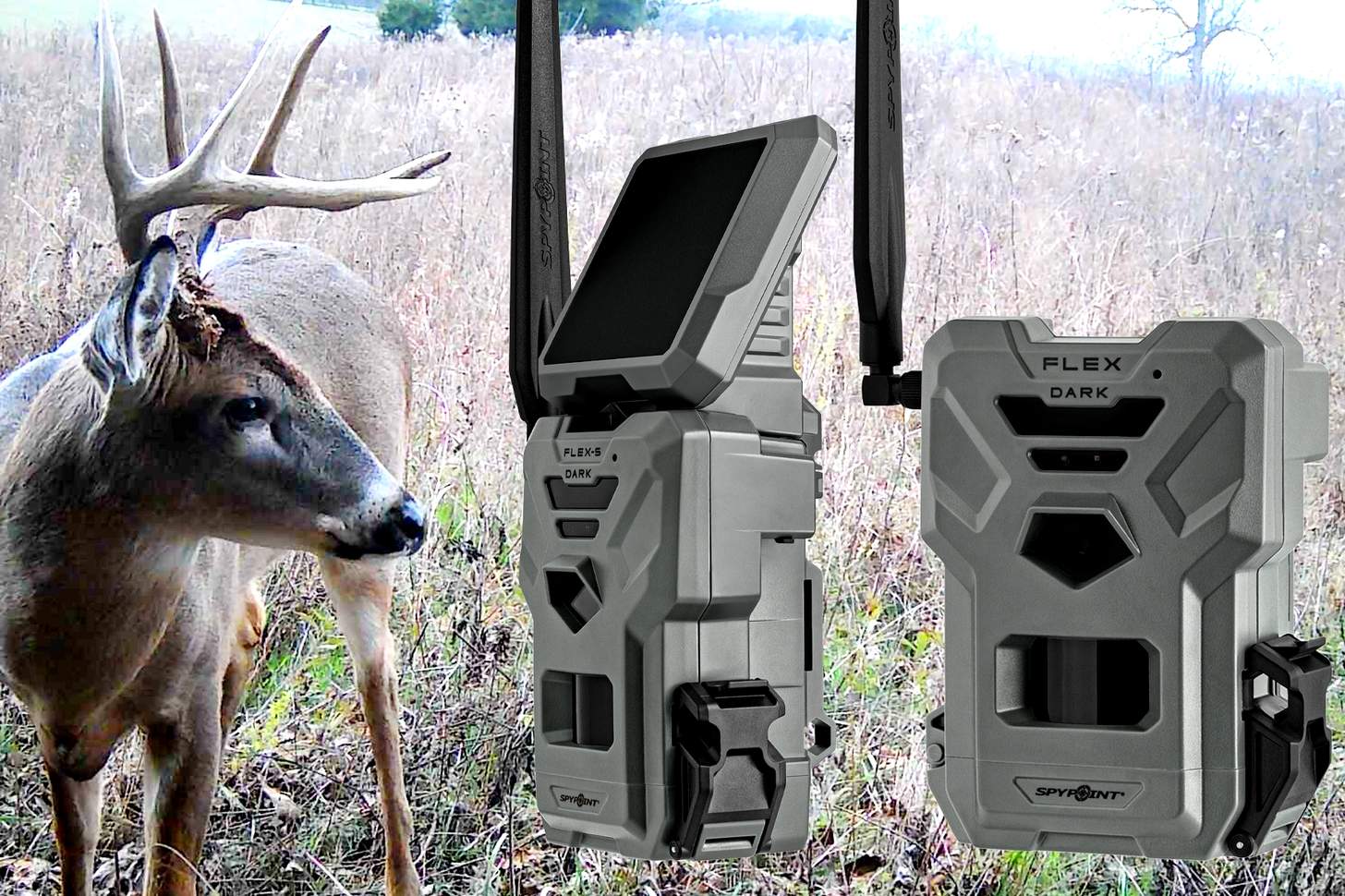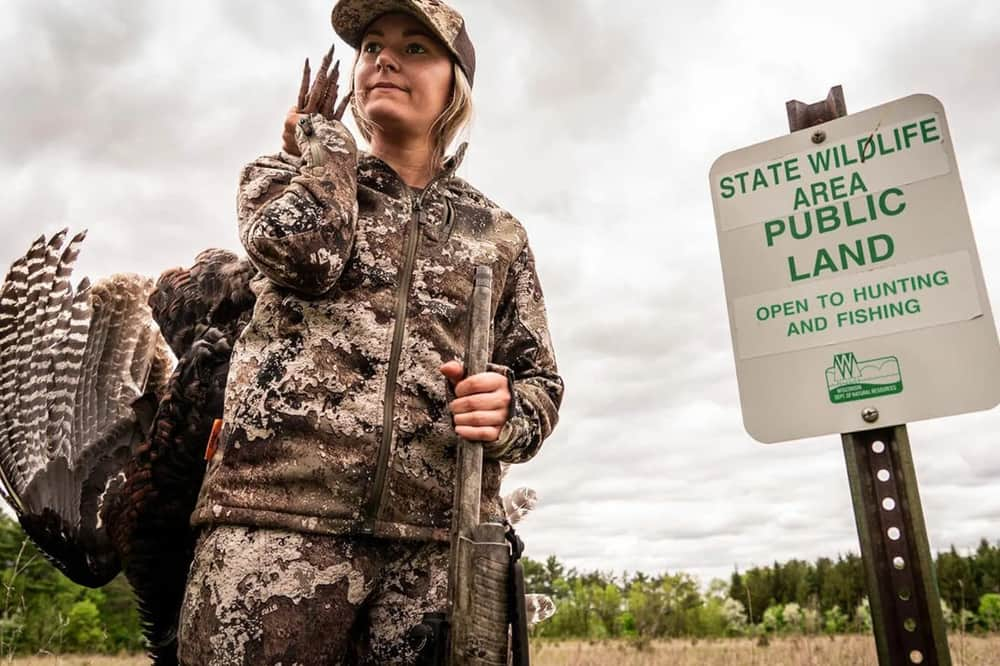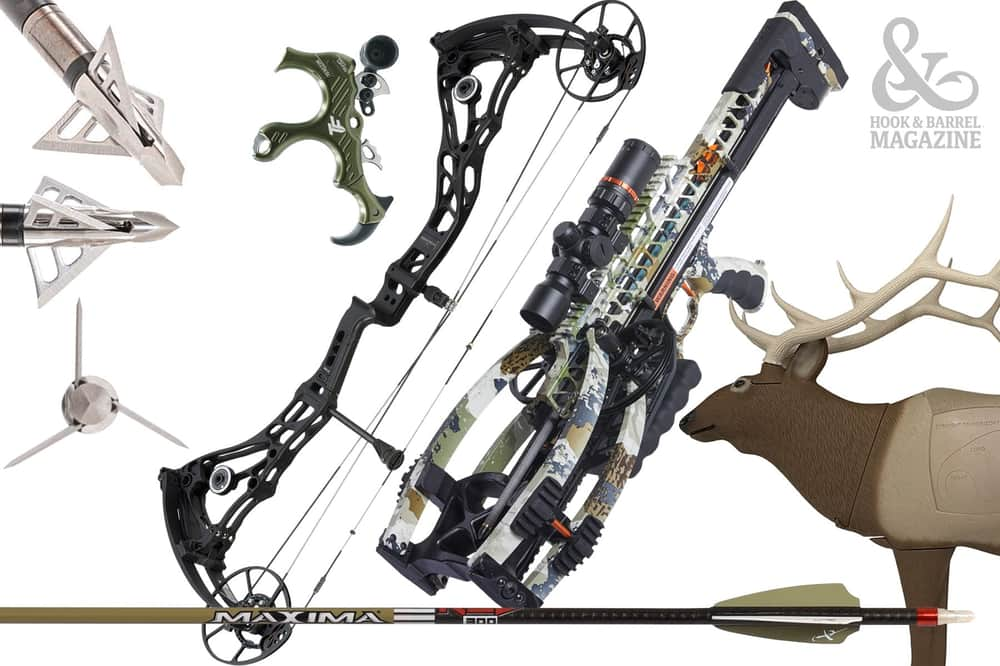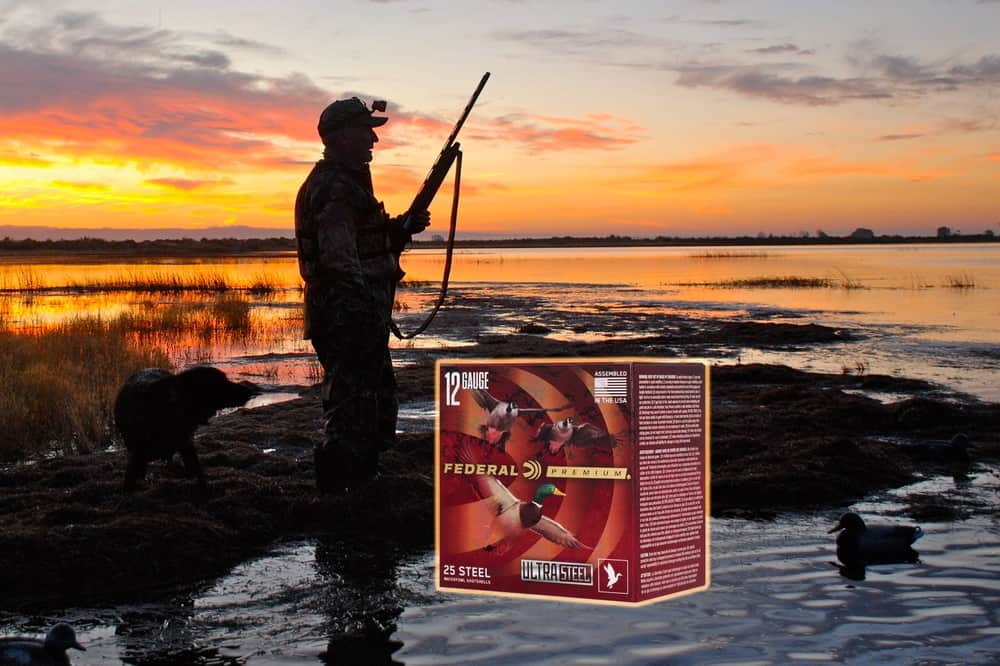This content is brought to you by SPYPOINT
SPYPOINT has been in the cellular trail camera game for a long time. Thus, it came as no surprise when it launched the all-new DARK cameras, which are offered as the FLEX-DARK and FLEX-S-DARK models. Here’s what you should know, with some interesting camera locations for various hunting types and game animals.
The FLEX-DARK captures 40-MP photos and 1080P videos. It has a 100-FT detection and illumination range, 0.3-second trigger speed, etc. It includes the No-Glow LED option.
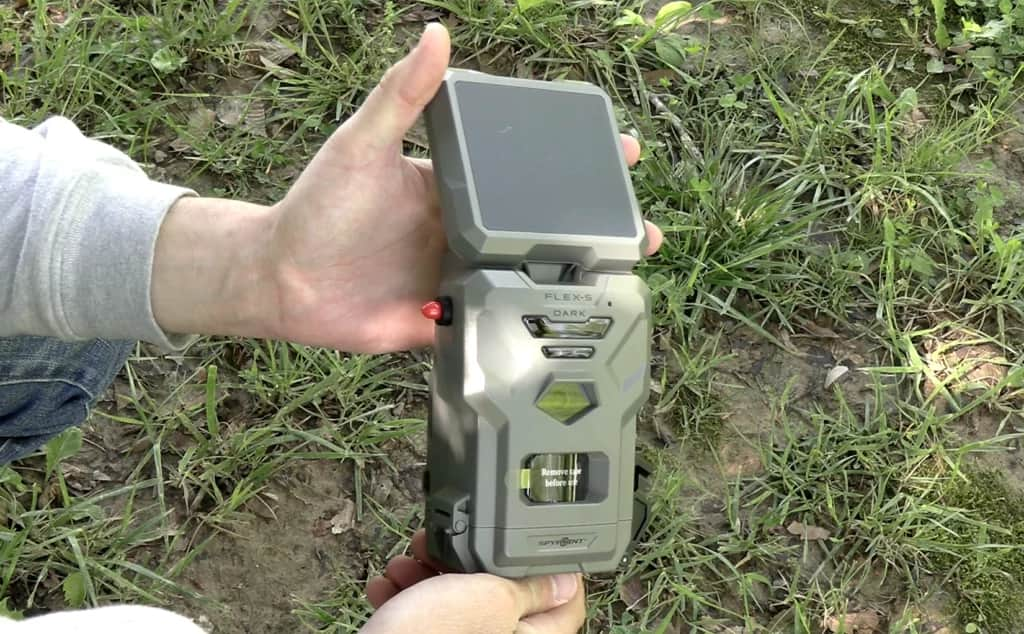
The FLEX-S-DARK takes 40-MP photos and 1080P videos. It boasts a 100-FT detection and flash range, 0.3-second trigger speed, and more. With a built-in battery, it can replace up to 1,000 AA batteries. It includes the No-Glow LED option. Most importantly, it incorporates an integrated solar panel. Positioned where it gets sunlight, this can boost battery life significantly, and in some instances, indefinitely.
Other Flex Series Options
Those who want more options might check out two other offerings in the Flex series. These include the FLEX-M and FLEX-PLUS. The FLEX-M comes in at a very affordable price. It has a 90-FT detection and flash range, 0.4-second trigger speed, and captures 28-MP photos and 720P video.
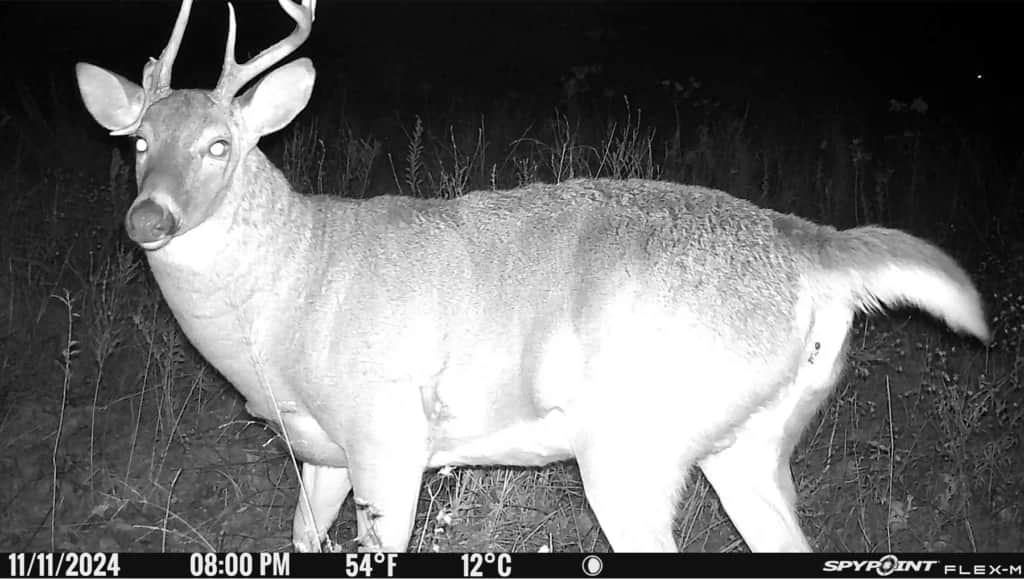
The FLEX-PLUS offers additional (double) battery capacity. It also takes 36-MP photos, 1080P videos, and more. It features a 100-FT detection and flash range, 0.3-second trigger speed, and more.
Choose the Right Camera for You
Some SPYPOINT features are universal across all models. Additional SPYPOINT features within the FLEX series include the DUAL SIM Configuration, meaning it selects the best cellular service based on what’s most available in its given location.
Furthermore, the FLEX-PLUS and FLEX-S-DARK include the On-Demand feature, incorporate Instant Mode and HD photo and video requests, etc. Of course, all of these cameras are simple to set up and deploy.
The cams have a simple on/off switch. The Test button improves setup and assuredness the camera is working before leaving the field. The MicroSD card Format button formats microSD cards to ensure smooth compatibility and operation.
All four of the cameras in this series are GPS-enabled, incorporate four Low-Glow LEDs, etc. Each camera takes up to three photos in Multi-Shot Mode. Each includes Continuous, Time-Lapse, and Time-Lapse-Plus Modes. All four include sound recording with video.
SPYPOINT Accessories To Upgrade Your Game Recon Game
Additional accessories to consider include memory cards, cable locks, a Lithium Battery Solar Panel (5W), and a Lithium Battery Solar Panel (10W). These ensure the cameras continue running for longer durations.
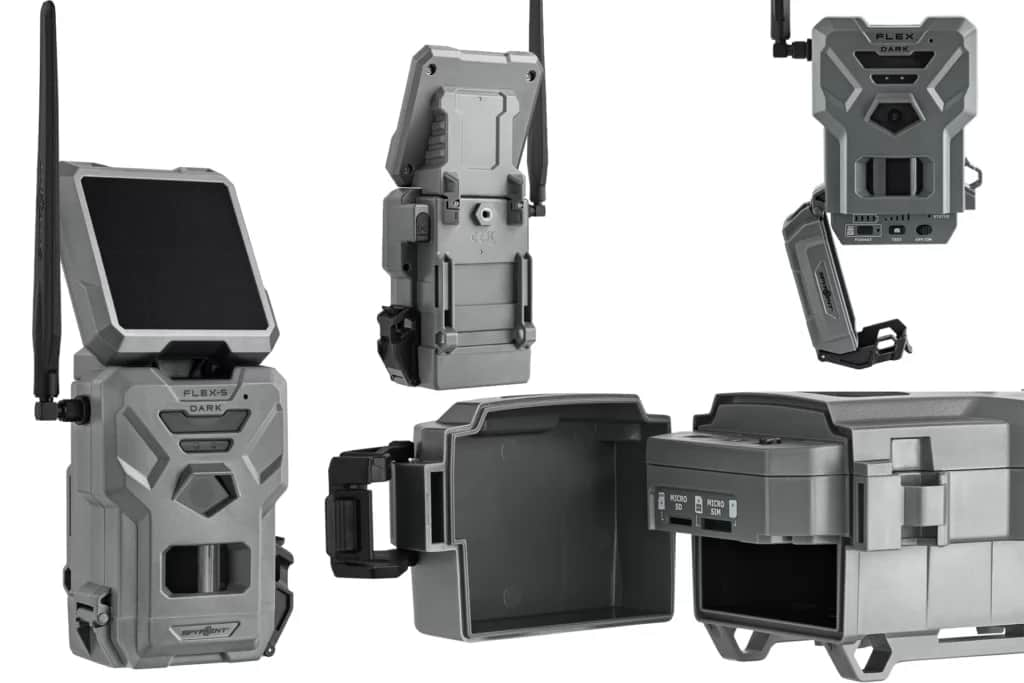
With an understanding of the four members of the FLEX series, study the specs and choose the one that’s right for you. Do that, and you’ll be well on your way to deploying a well-built camera, or cameras, in the field.
Of course, control each of these cameras from the SPYPOINT app. These units are easy to set up. Leave the camera in the “On” position for smooth operation. Use the Format button to prep the SD card. Hit the Test button to ensure it’s sending and aimed/framed correctly.
Each camera comes with a free 100-photos-per-month plan. These can be upgraded to more robust plans as desired.
Great Camera Setups for Deer
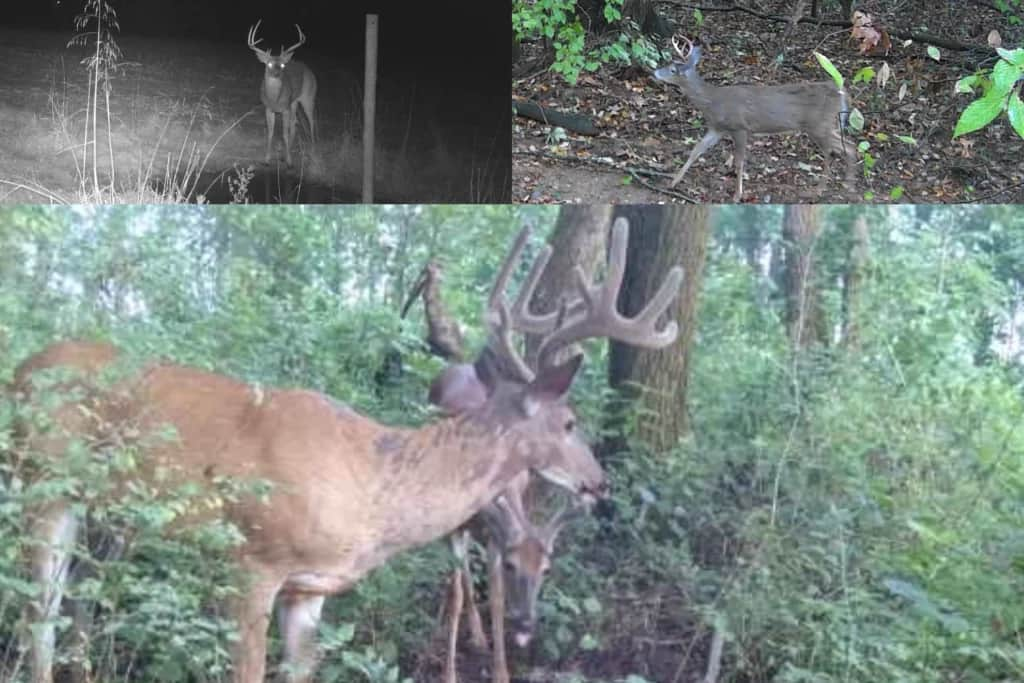
Some locations are better than others for capturing photos of deer. The following are great selections. Keep these in mind when placing your cameras this year.
Great spots to remember include bait stations, bedding area entry/exit trails, benches, crossings (creek, ditch, river, etc.), edge cover, food plots, funnels / pinch-points, inside field corners, mineral licks, ridge lines, ridge endings, saddles, scrapes (and mock scrapes), staging areas, travel routes, water holes, etc.
Overall, consider the time of year as the best decider of trail camera placement for whitetails. Whether it’s the early season, pre-rut, rut, or late season will impact where to deploy these scouting units. If you choose spots that are seasonally minded, chances are good you’ll be getting great images in no time.
Optimal Camera Setups for Turkeys
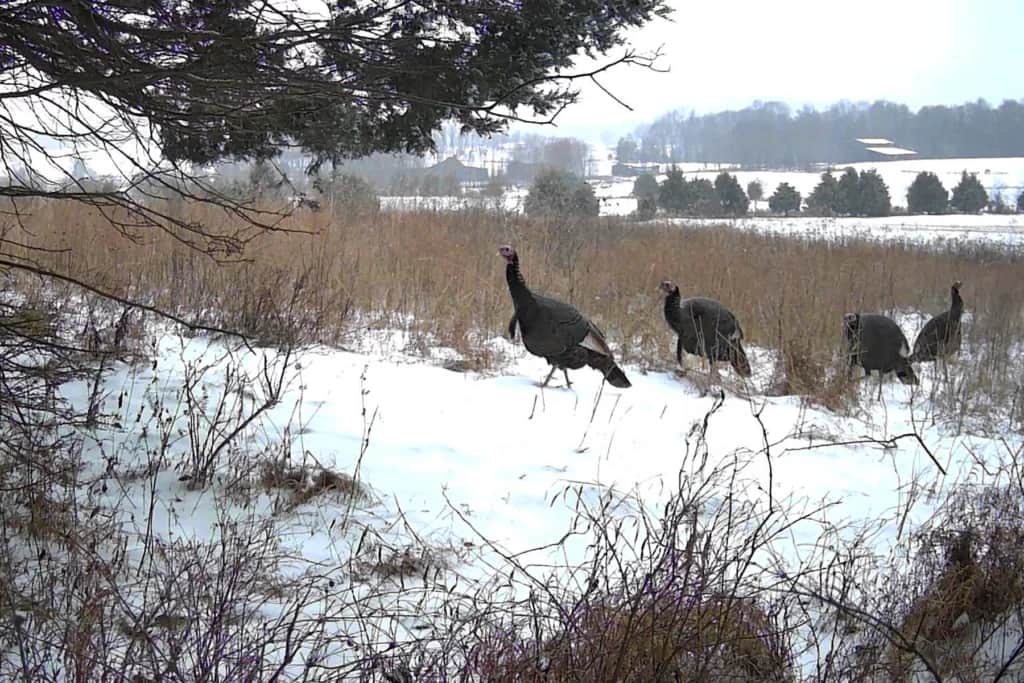
Trail cameras are excellent scouting tools for wild turkeys. Just like whitetails, these animals express patterns that can be identified and incorporated into a hunt plan. Here are some good spots to place trail cameras for the upcoming turkey season.
Place cameras in clearings, dust bowls, field edges, food plots, small isolated water sources, loafing areas, logging roads, oak flats, pinch-points, ridge lines, roost areas, strut zones, trails, and travel routes, and more.
Remember, turkeys are short. So, don’t hang cameras as high as you do for whitetails. About two feet is ideal for capturing good images of turkeys. That will create excellent, straight-on views of these incredible birds.
Great Camera Setups for Predators
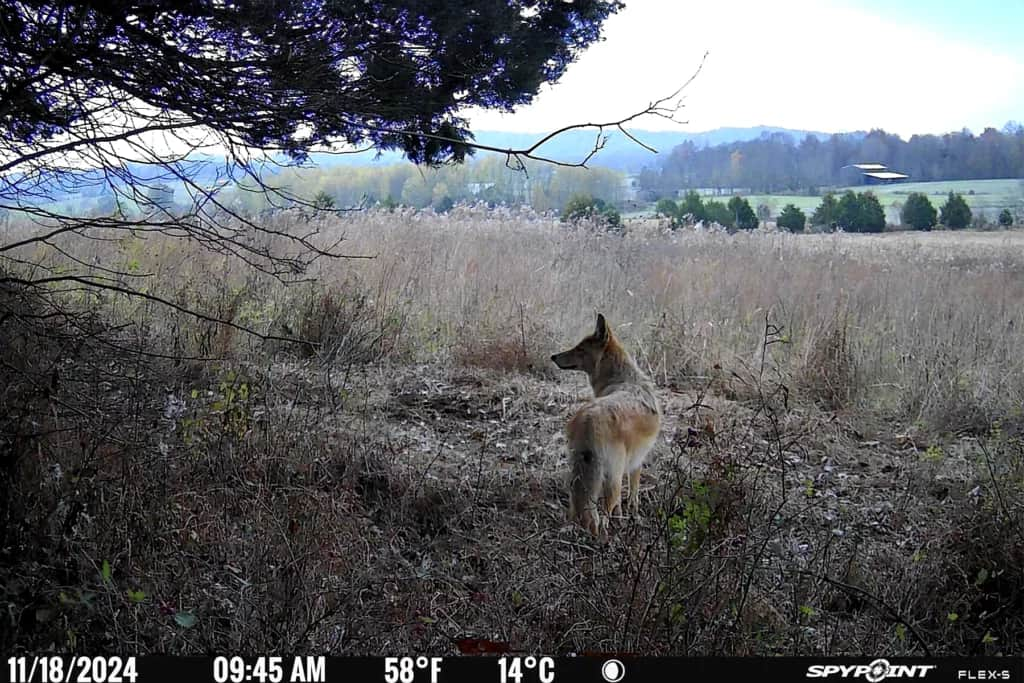
Don’t limit your trail cameras to deer and turkeys. These are excellent for scouting predators, too. Bobcats, coyotes, foxes, and more, these are useful tools for finding and patterning them. Re-deploy cameras for this phase of the hunting season, too.
Consider hanging cams close to prey animals, other food sources, crossings (ditch, fence, etc.), denning areas, field edges, funnels, and pinch-points, isolated water, scent-marking areas, trails, two-tracks, etc.
All things considered, don’t forget to be especially careful when handling your cameras and touching things around the setup. Bobcats and coyotes have especially good noses, and they’ll know if you’ve been around the camera sites. Over time, that will lead to diminished movement or missed opportunities.
